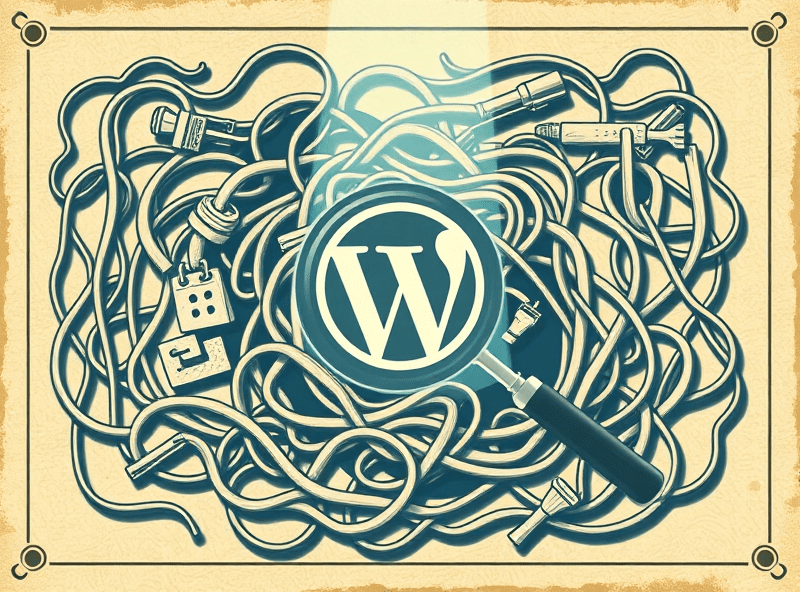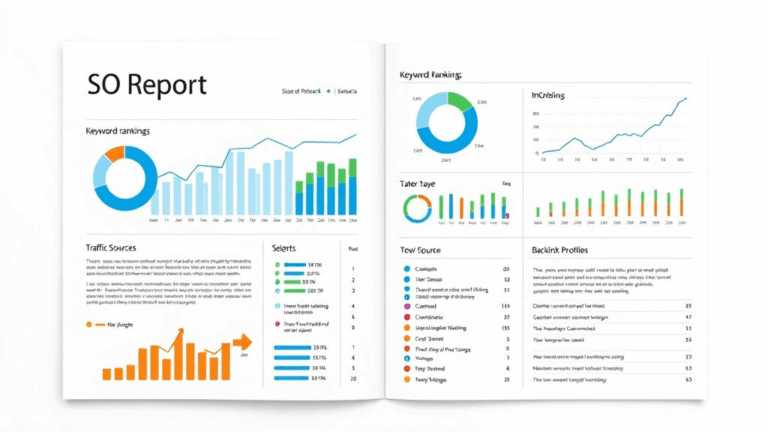Fixing SEO Plugin Conflicts on WordPress Without Wrecking Your Site
Yoast SEO vs Rank Math: They Don’t Play Nice Together
I learned this the hard way after trying to test metadata output across a couple of client staging environments. Had Rank Math active for Open Graph control but switched Yoast on briefly to double-check some schema output. Immediate chaos. Both plugins tried to write <meta name="description"> tags, and in one edge case they both injected canonical tags for different URLs. Googlebot must’ve been real confused.
Even after deactivating one, settings from the previously active plugin sometimes linger. For example, Rank Math will write structured data snippets that don’t get properly removed when you deactivate it—they just persist in your HTML output unless you manually clear cached files or regenerate theme output. Yoast, on the other hand, tends to overwrite but not cleanly remove competing fields.
Here’s what’s worse: some page builders (like WPBakery or Elementor) cache the meta blocks separately. Toggling plugins off doesn’t clear their storage. The actual rendered HTML may still call ghost data from the disabled plugin. A good test is to curl a page directly and compare browser inspect output. If they mismatch, your site’s caching something outdated behind your back.
Bottom line: don’t try to run them both, even for testing. Spin up a standalone staging clone using something like Local or WP CLI export/import if you wanna truly A/B them.
Conflict with Caching Plugins Like WP Rocket or W3TC
If I had a dollar for every time I blamed my broken title tags on a theme update, when it was just WP Rocket holding onto stale SEO plugin output… well, I’d be able to afford one of those ugly Google-branded server racks.
The problem: most caching plugins cache the fully-rendered head of each page. If you switch SEO plugins or just tweak your schema settings, those cached headers don’t auto-clear unless you deliberately purge them.
- Clear all caches the second you deactivate or enable a different SEO plugin.
- Watch out for fragment caching—some setups cache blocks of reusable content, including head tags.
- CDNs (like Cloudflare) might cache entire headers too, depending on your tier and rules.
- Set up a trigger to auto-clear cache from functions.php if head content changes (dirty but effective).
- If you’re running WP Rocket, use
rocket_clean_files()in your custom hooks after a settings update.
There’s also a logic bug I hit once where WP Rocket’s Lazy Load feature broke the ld+json schema block output from All in One SEO. It literally sliced the tag mid-string and returned invalid JSON. Just toggle Lazy Load off and see what happens.
Site Maps and 404s: Quiet Fights in Your .htaccess
Rank Math likes to own your sitemap XML. So does Yoast. And Google Search Console really doesn’t vibe with sitemap.xml disappearing every other Tuesday.
There’s an undocumented edge case when both plugins attempt to rewrite /sitemap_index.xml and its children sitemap structures. Most people notice it after submitting a sitemap to GSC and finding out all the URLs inside it 404.
Dig into your apache logs and look for multiple 301s or 404s triggered at /sitemap.xml. In a case I saw, the .htaccess had two sets of RewriteRules injected:
RewriteRule ^sitemap.xml$ index.php?sitemap=1 [L] RewriteRule ^sitemap_index.xml$ /?sitemap=1 [QSA,L]
If two plugins are fighting to write the sitemap endpoint, you need to manually remove one’s rewrite rules. Best bet is to pick the plugin you want maintaining sitemap control and clean out all other plugin rewrite logic from both .htaccess and your nginx redirects (if applicable).
Oh, and if you’re running Nginx-only (without Apache fallback), good luck finding that step buried in either plugin’s support docs.
Broken Canonical Tags Are Quietly Tanking Your Rankings
One time I noticed our canonical URL field randomly appending /amp/ to all pages. I wasn’t running AMP. At all. Turns out a previously installed AMP plugin left behind rewrite fragments, and Yoast was somehow deducing that as the preferred canonical structure.
Canonical conflicts happen when:
- Your SEO plugin guesses canonicals based on permalink settings or what’s in the
$_SERVERvars - Another plugin (like a redirect manager) overwrites
rel="canonical"filters later - Your theme manually injects canonical output in
header.php(yes, this is a thing)
Use `wp_head` filter tracing to see what’s really adding the canonical. Dump the hooks using something like add_filter( 'wp_head', function() { var_dump(__FUNCTION__); } ); and log the output. If it’s not your SEO plugin writing it, you’re doomed to duplicate canonicals unless you intercept it.
Open Graph and Twitter Cards: Last Plugin Wins
Facebook debuggers are merciless. If you’ve got jumbled OG tags, your posts will preview like an ad for 2007-era Reddit.
WordPress SEO plugins don’t coordinate on Open Graph output. Each plugin thinks it owns the <meta property="og:title"> space, and unless one declares priority, you can get duplicated or conflicting declarations.
In one actual case I hit, Rank Math would write OG tags based on post excerpt and featured image, but then PixelYourSite added ones from the WooCommerce product short description and gallery. When we posted a product to Twitter, the card text said “Free shipping on moon mugs” but the image was a dog sweater.
In HTML it looked like:
<meta property="og:title" content="Moon Mugs">
<meta property="og:image" content="/images/dog-sweater.jpg">That sent us down a rabbit hole till we realized: Open Graph’s not smart—it just picks the first valid-looking tag. If you don’t set plugin priority (either via filter or proper global tag removal), the browser literally doesn’t care which tag came from which plugin. Only which tag came first.
Schema Output Collisions — Especially with WooCommerce
I didn’t know this until someone in a Facebook group dropped a line: When Rank Math injects Product schema and WooCommerce outputs its own JSON-LD, sometimes you get two Product blocks in your page’s source. Lovely.
The result? Google’s schema testing tool will flag “Multiple entities for Product” and may drop both. This silently kills your rich results eligibility.
If you look in the plugin settings, both Yoast and Rank Math give these toggles to “Disable Woo schema” or “Integrate with Woo schema,” but they do it differently. Rank Math disables it by intercepting Woo’s schema filter:
add_filter( 'woocommerce_structured_data_product', '__return_false' );Yoast integrates by trying to merge the data streams, which is messier. In practice, I’ve had more consistency just disabling all of Woo’s output and letting the SEO plugin fully define it—otherwise you get weird edge cases where the product rating is in one JSON block and the price in another. That’s a quick way to not show <Product> stars in search results ever again.
Also, be careful testing in local/staging unless you’ve whitelisted your environment in the schema checker. I once thought my schema disappeared… it didn’t, Google just blocked the request.
Weird Admin Panel Bugs When Multiple SEO Plugins Are Active
I briefly had both All in One SEO and Yoast active (don’t ask). The post editor became unusable—meta boxes stopped rendering, and the console threw a jQuery version mismatch from the meta-tab toggles. Turns out they were both enqueueing different versions of jquery-ui, and worse, competing with jQuery migrate behavior.
When I dug in, the real giveaway was that both plugins inserted their own global JavaScript called on document ready, but one tried to reference form fields initialized only by the other. No error message… just blank output. Love that.
If your SEO plugin meta boxes disappear or your titles don’t save, disable every SEO plugin but one, reload the post editor, then reenable them one by one while checking network console requests and WordPress’s own hooks firing with doing_action().
A helpful trick: jam in this trace into your admin footer temporarily:
add_action('admin_footer', function() {
global $wp_filter;
echo '<pre>'; print_r(array_keys($wp_filter['admin_enqueue_scripts']->callbacks)); echo '</pre>';
});Then you can actually see which plugin registered assets, and in what order. Messy, but better than drinking three coffees and still guessing.














